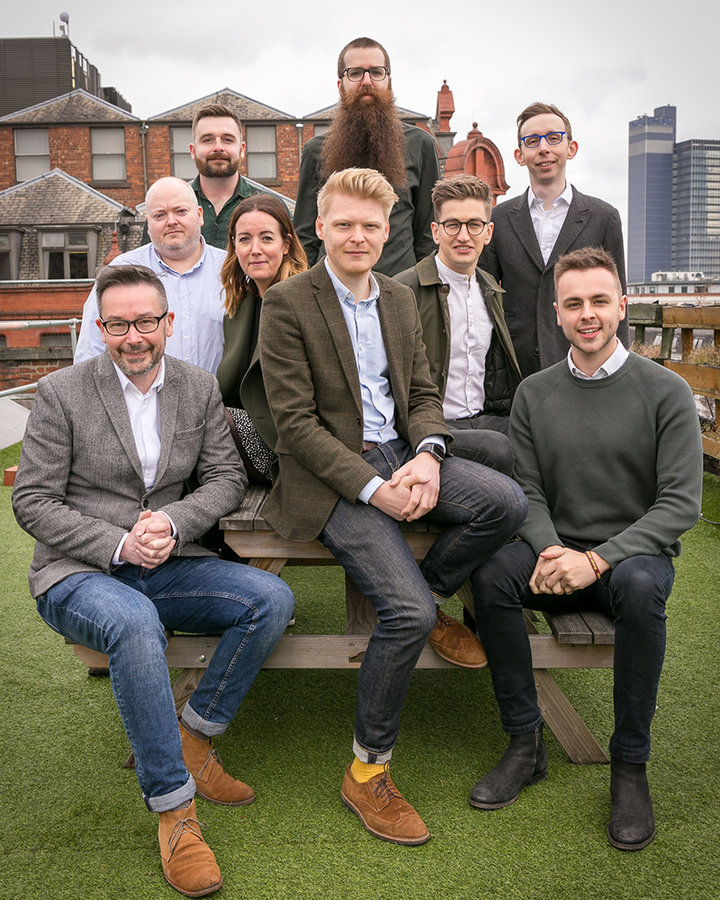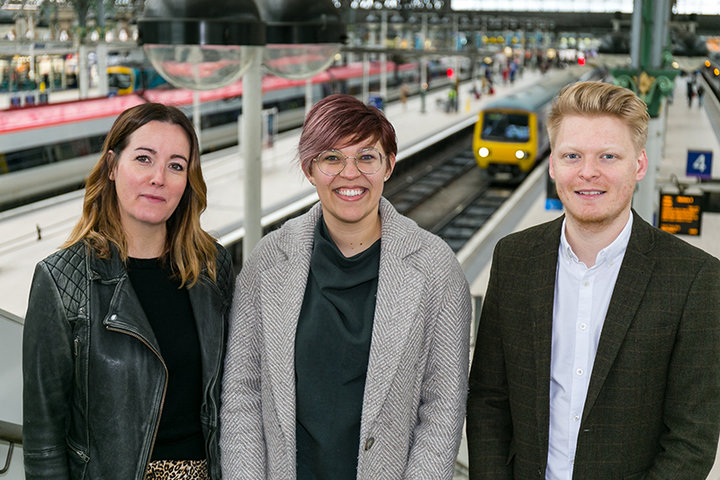Insight CSR
Making an impact through social value
Matt Haworth, co-founder of Impact Reporting, discusses how technology can help to improve social value reporting
Matt Haworth is a man on a mission. Both of his tech companies use digital to do good and only work on projects that ‘have a positive social impact on people and improve lives.’
Impact Reporting, now valued at £2m, is the brainchild of Haworth and Ed Cox, the co-founders of Reason Digital. After working with public sector organisations and charities for nine years they realised there was a gap in the market for a holistic social value reporting system.

The Impact Reporting team
The need for better CSR reporting
Speaking about the company’s origins, Haworth says: “Back in 2013 we were working with the BBC on their first Corporate Social Responsibility (CSR) report as part of a project at Reason Digital. This proved to be really disjointed, as numerous departments were all feeding in their social value data. It was very inefficient, and we soon realised it would be so much simpler to analyse and understand if there was one central portal.
“I tasked our developers with creating a single real-time dashboard which centralised all data. Our researchers, Ian Jukes and Dr Paul Joyce, were employed to investigate how companies measured social value, to gain a picture of the national landscape.”
“
Most companies found sporadic data confusing and there was a need to have a system which brought all data together in one place."
“They both interviewed over 20 heads of marketing and CSR managers across several sectors and developed a detailed CSR report, which included measurements and an analysis of how the reports should look," he continues.
“They fed back that most companies found sporadic data confusing and there was a need to have a system which brought all data together in one place. They also established there was a need for live reports rather than annual papers.”
The business began to grow after the team partnered with The University of Manchester and realised how ground-breaking the idea was. After an initial investment of £117,000 from Innovate UK, a non-departmental public body funded by a grant-in-aid from the UK Government, and the university, Impact’s developers could then fund building the system and employ two members of staff to research CSR across various organisations.
Calculating social value
Impact’s initial plan was to develop a credible framework for measuring social value. However, research uncovered a series of existing methodologies that performed this role.
“Several frameworks already existed, so rather than provide another alternative to a problem that had already been solved, we decided to pivot, and instead focus on technology by providing a ‘framework agnostic’ tool,” Haworth explains.
“By creating a tool which was useable by all types of organisations, regardless of their preferred reporting framework, or method for valuation, we were able to help more clients, from a range of sectors, with a range of existing CSR skill sets.
“Rather than only working with businesses who wanted to monetise their social good or force all organisations to adopt a specific reporting framework, we were keen to empower and facilitate all organisations in their quest to have a positive social impact, no matter which methodology suited their objectives best.”

Bethan Williams (head of sales & marketing at Impact), Sarah Borien (sustainability strategy manager at Network Rail) and Chris Farrell, MD of Impact.
Building a new tool around clients’ needs
Impact Reporting’s first clients – One Manchester, a housing and community services provider and The University of Manchester – helped shape the tool and it was modified according to their needs.
“Impact was co-designed with The University of Manchester,” Haworth says. “They required an online system which captured all the great work their staff were undertaking as part of their social responsibility initiative, ‘10,000 actions’. This is the largest sustainability initiative for staff within higher education, involving over 10,000 employees.
“The university needed a tool that allowed users to quickly log socially impactful tasks and exist alongside contextual information about how and why these actions were important. Their requirements meant we developed some ‘gamification’ features – little tricks to further encourage and motivate staff to get involved and maximise the university’s positive social and environmental impact.”
“
The university needed a tool that allowed users to quickly log socially impactful tasks and exist alongside contextual information about how and why these actions were important."
Impact Reporting has a clear introductory process for new clients. They are welcomed onboard by a team of social value strategists, who work with companies to understand set objectives. The team then runs client workshops and discuss CSR, marketing and finance. Social and environmental goals are defined, and activities are mapped out.
With this information, the team can set about constructing an organisation’s personalised set-up of the tool and providing expertise and guidance on CSR best practice and reporting.
The team trains clients to facilitate data capture and provides the digital and conceptual tools they need to be independently successful in the CSR space.
Reaching the right goals
Among other frameworks, Impact Reporting is aligned to and supports the Sustainable Development Goals (SDGs), 17 global goals set by the UN in 2015. These are a blueprint to achieve a more sustainable future and address global challenges related to poverty, inequality, climate, environmental degradation, prosperity, and peace and justice.
“Whilst we remain framework agnostic, we have decided to align elements of our product with the UN’s SDGs, given their worldwide and future-proofed applicability,” Haworth explains. “We allow organisations to easily track and report on their great pro-social and pro-environmental activities according to which SDG or SDGs they contribute towards – to provide structure and help employees understand the greater goals they are helping to achieve.
“We even have plans to build a feature that automatically recognises which SDG an activity belongs to and assign it accordingly.”
“
Whilst we remain framework agnostic, we have decided to align elements of our product with the UN’s SDGs, given their worldwide and future-proofed applicability."
Impact Reporting exists to record and analyse the value of an organisation’s social value efforts. In 2018 it measured an impact of over £50m for clients spanning law, construction, transport services and housing providers. As a CSR and sustainability reporting tool, it streamlines the way businesses can capture and monitor processes or organisational activity that has a social or environmental benefit.
Impact’s client roster now includes Network Rail, Manchester Airport Group, global law firm DWF, Places for People and Regenda Group, national housing organisations and The British Library. The business plans to continue to work with a range of clients across multiple sectors that capture CSR.